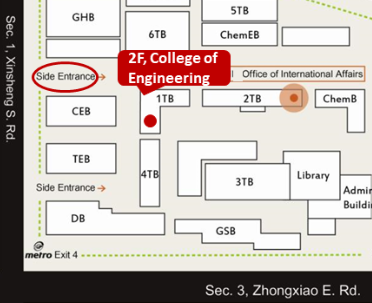Water Environment Research Center
Contact : Prof. Jen-Yang Lin (jylin@ntut.edu.tw)
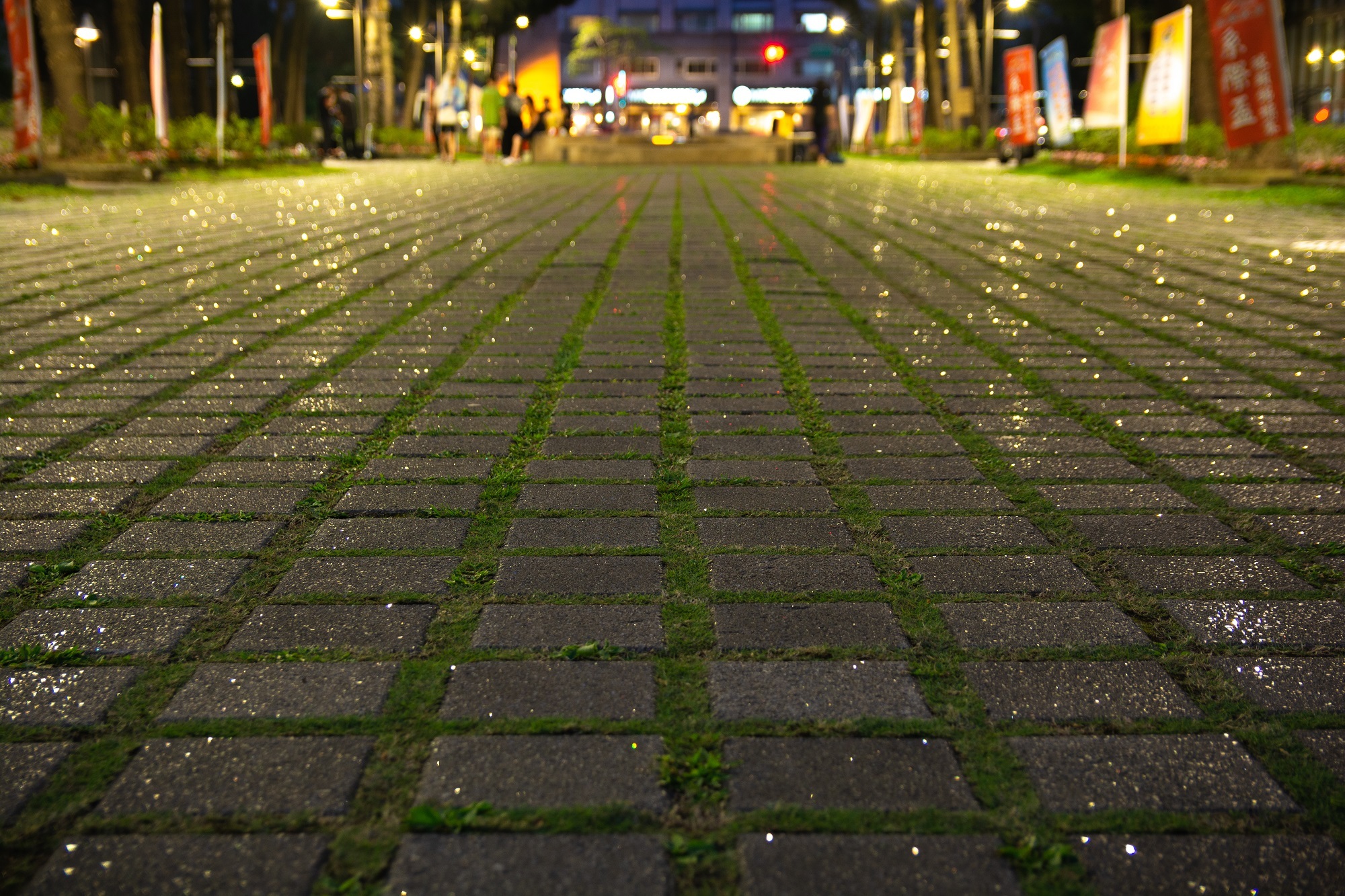
The Water Environmental Research Lab is devoted to improving water resilience by harnessing the science of ecological engineering. For the next 30 years, this will be one of the sites of the Infrastructure Development Program to provide access to safe drinking water and basic sanitation. The Taiwan government annually grants this lab thousands of dollars for research projects to collaborate with industries and private companies. Highlights of the lab include:
1. The MSL system, to remove a wide variety of contaminants including organic and nutrients.
2. The tree box filters, to act as mini bioretention systems to promote infiltration.
3. The LA-300, using Mie Scattering Theory to measure particle size over the range of 0.1-600 µm.
4. The Green BMPs, for stormwater management including detention ponds, rainwater harvesting systems, permeable paving, and more.
Disaster Prevention Center
Contact : Prof. Che-Hao Chang (chchang@ntut.edu.tw)
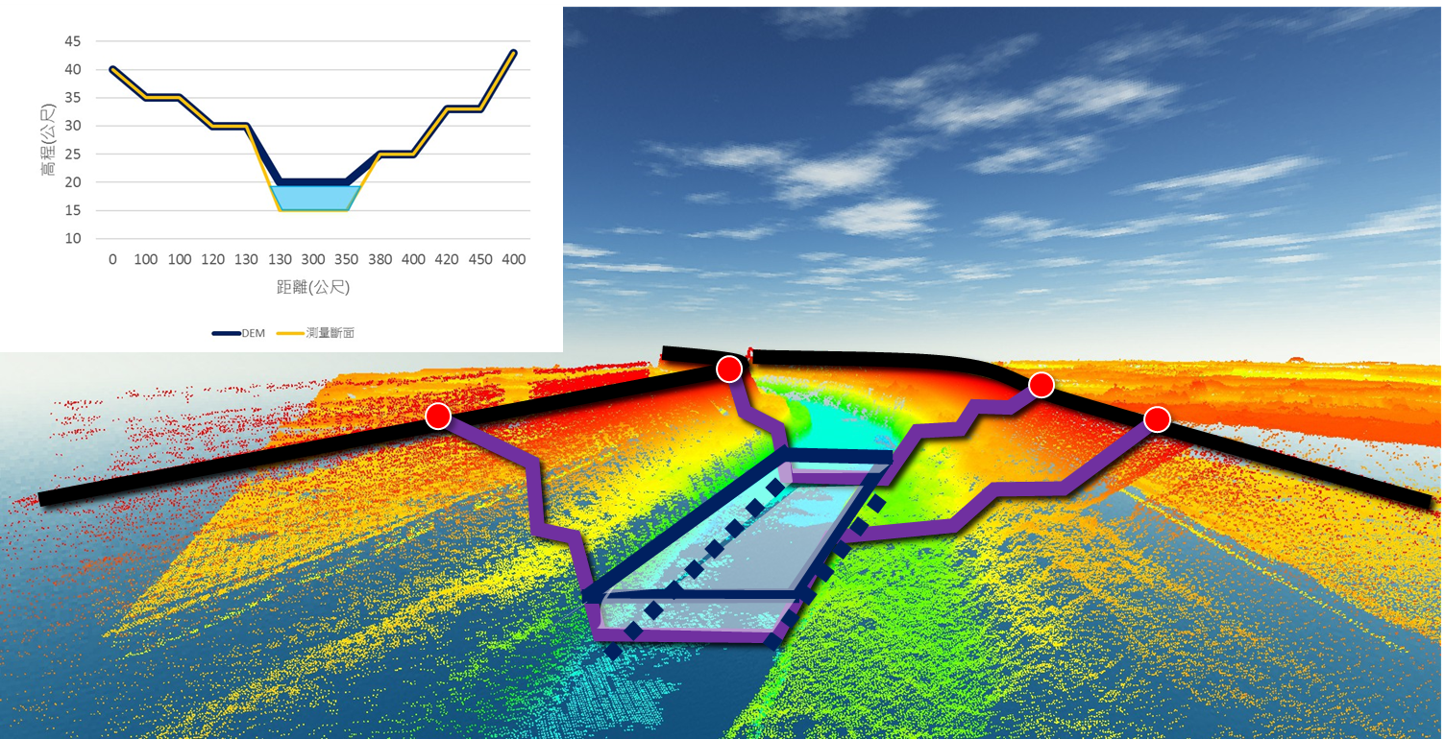
The Center promotes the development of practical products and technical services for disaster management, and corresponds to the three major blocks of “pre-disaster preparedness”, “disaster relief in disaster” and “post-disaster recovery”, which are described as follows:
1. Pre-disaster preparation technology: monitoring and structural seismic assessment of key structures, establishment and timely updating of water regimes and models, estimation of earthquake damage and disaster relief planning, construction of drone space information and Slope and tunnel safety assessment.
2. Disaster rescue techniques in disasters: disaster relief bridges and multi-functional disaster relief power stages, rapid identification of structural damage and drone detection systems, instant flooding range measurement and forecasting, and strain dispatching systems.
3. Post-disaster recovery technologies: emergency rescue energy supply, permanent structural reinforcement, tunnel assessment and reinforcement technology.
A total of 504 papers on formal journals and seminars at home and abroad have been reviewed. A total of 58 pieces, the number of industry-university cooperation is 92 pieces totaling about 140 million, and the number of technology transfer is 19 pieces, totaling about 4.5 million.
Center for Research on Structural and Material Engineering
Contact : Associate Prof. Li-Hsien Chen (lhchen@ntut.edu.tw)
The principle of self-sufficiency is self-sufficient, and research funds are allocated according to the prescribed amount. It is expected to effectively enhance the academic status and prestige of the school and make concrete contributions to the country and the industry.
1. Technical consultant: quality diagnosis, technical identification, technical consultation, technical guidance.
2. Testing services: structural testing, material testing, reinforcement technology, instrument rental.
3. Information services: road information, management systems, technical surveys, bridge monitoring.
4. Technology Communication: personnel training, technical seminars, technical seminars, technical publications.
5. Commissioned development: structural design, software development, reinforcement design, construction method development.
Precision Analysis and Materials Research Center
Contact : Prof. Chung-Kuang Yang (ckyang@ntut.edu.tw)
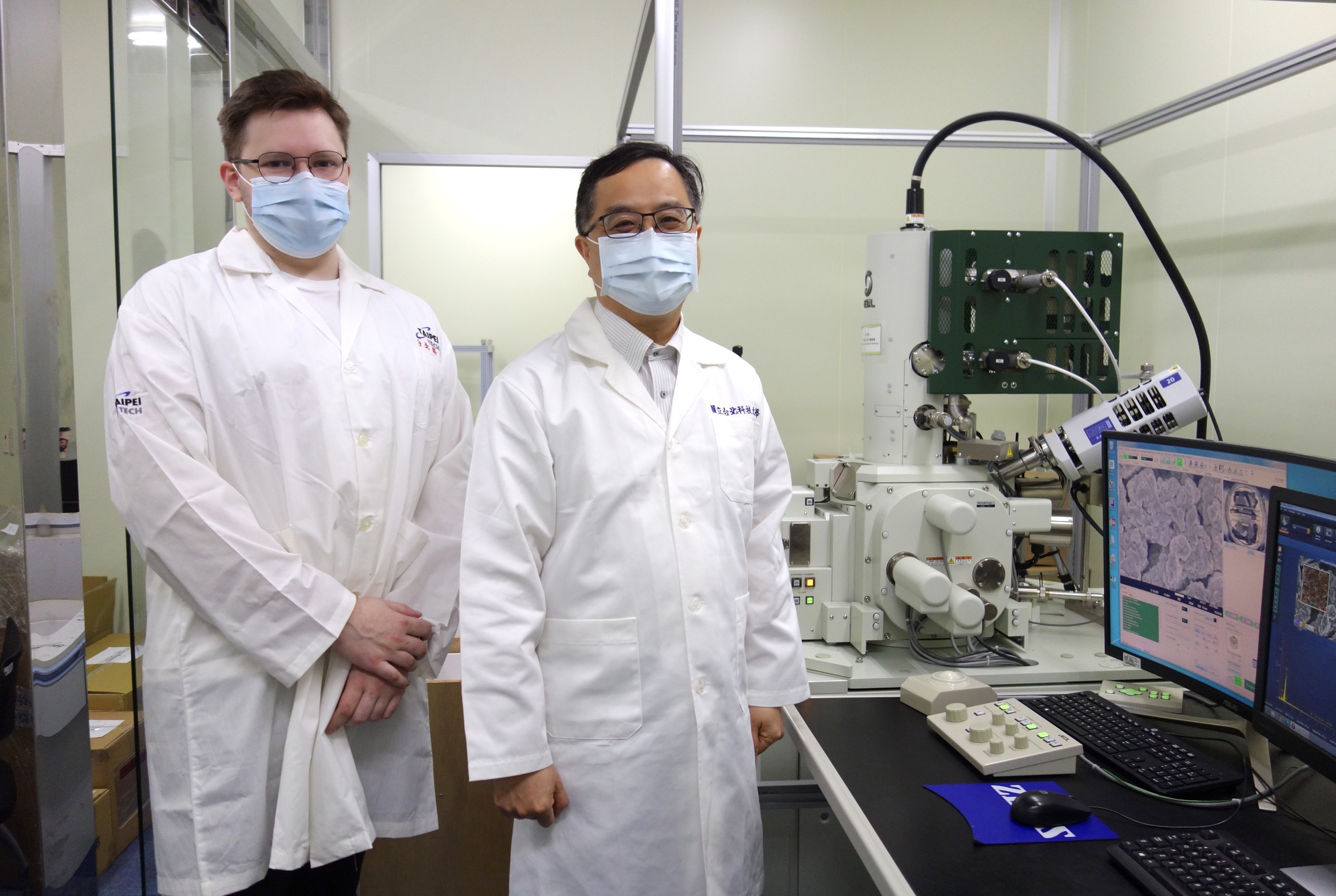
Establishment:
Thanks to the outstanding and enthusiastic alumni who believe sophisticated research equipment, environment and management are the prerequisites for becoming a world-class university. Therefore, a special donation was made to assist the alma mater to set up the center with various valuable testing equipment, which was officially completed and opened on August 1, 2015.
Purpose:
The center is committed to providing precision analysis equipment and testing technology required by the school, academics, and various industries to research and develop new technologies. The center has also established a management system and passed the TAF international certification to maintain laboratory testing capabilities and provide a consulting service platform for the school as a good partner between domestic and foreign companies in term of research and development, so that the school are capable to cultivate scientific and technological talents for material research, testing and analyzing.
Chemical Material Analysis Research
Contact : Associate Prof. Teh-Hua Tsai (thtsai@ntut.edu.tw)
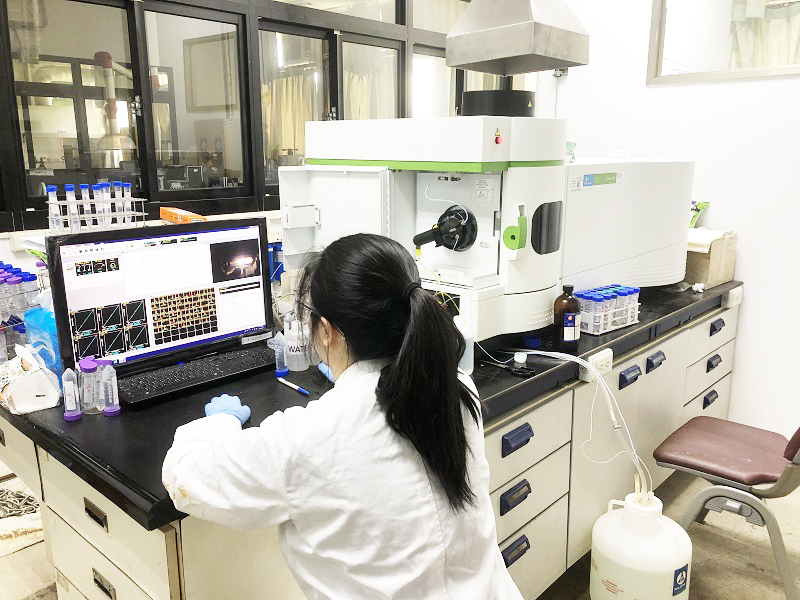
R&D direction:
1. Investigate and research chemical materials such as composition, physical properties, chemical properties, electrical conductivity, thermal conductivity, mechanical properties, flame retardancy, corrosion, decomposition, separation, and recovery.
2. Research and development of precious metal recycling technologies such as copper resources.
3. Research and development of wood preservative material analysis technology.
4. Research and development of polymer material analysis technology.
5. Research and development of optoelectronic and energy materials analysis technology.
High-Value Biomaterials Research and Commercialization Center (MT3+)
Contact : Prof. Hsu-Wei Fang (hwfang@ntut.edu.tw)

Recently, biomaterials engineering has been widely used in medical devices, tissue engineering, biosensors, and other emerging biotechnology industry ; biomaterials engineering is part of the key industries in the government campaign "Two Trillion, Twin Stars". Our center grasped the advantages of technology in Materials, chemical engineering, biotechnology, stem cells and tissue engineering and combined with the knowledge of clinicians, further committed to the future of interdisciplinary engineering role.
Mission: 『 Begin with the Need 』Clinical needs to guide the development of commercialization of medical material.
Vision: Implementation of the commercialization of medical material; Promote the Medical Device Industry; Enhance the quality of medical care; Enhance human well-being.
Advanced Materials Research Center
Contact : Prof. Ren-Jei Chung (rjchung@ntut.edu.tw)
The advancements of science and technology depend on material developments. The development of basic materials to cross-field integration is a major challenge for the industry and the direction of industrial upgrading. In many developing fields, the performance of materials is the decisive factor affecting the final successfulness. The “Advanced Materials Research Center” is established in August 2020. Its purpose is to assist the industry, government, university, and academia institutes to develop advanced materials and integrate cutting-edge technologies. Furthermore, it combines with practical teaching to lead students to shorten the gap between the industry and university, and form a team to strive for large project and resources inside and outside the school. This center is divided into five groups: green energy, soft electronics, bio-information, biomaterials, and interface engineering, according to research and application topics. Each group with 5 to 20 members has a team leader to control the progress of implementation and report regularly. To fulfill the requirements of R&D for advanced materials in various fields, they will provide accomplished services on materials processing, facility supporting and analyzing.
Research and Development Center for Smart Textile Technology
Contact : Prof. Syang-Peng Rwei (f10714@ntut.edu.tw)
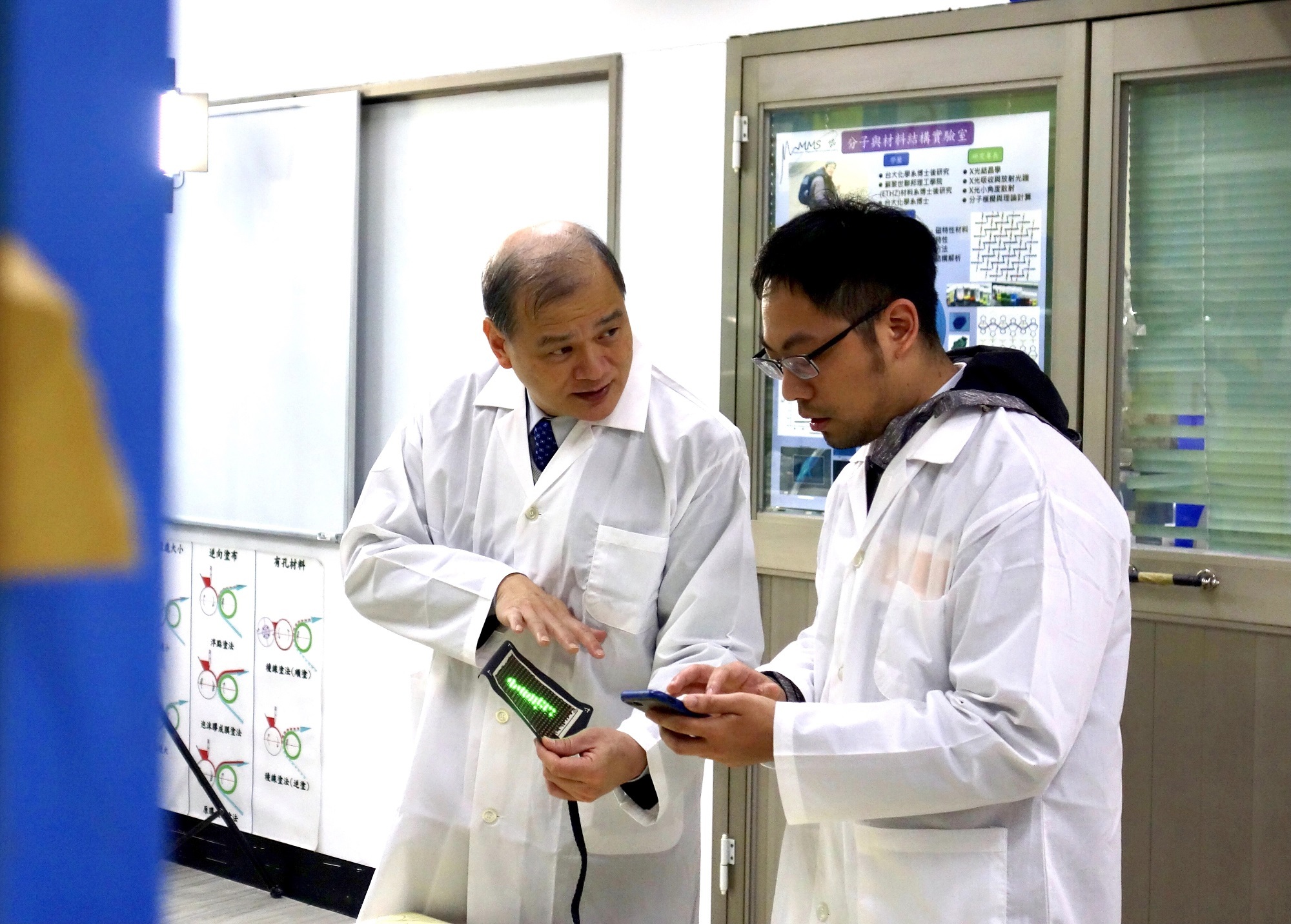
The core purpose of the establishment of the center is to convene domestic "functional textiles, film processing, textile dyeing and finishing materials, polymer film and composite materials processing", and work on joint research and development to promote Taiwan's coating-related applications. The production and academic circles will continue to develop. According to the research theme, the center is divided into six groups: “Polyester New Materials”, “Nylon New Materials”, “Self-Repair Coating Materials”, “Polyurethane New Materials”, “Electronic Assisted Smart Textiles” and “Coating Technology Improvement”. The center covers an area of about 150 pings, and it has three pilot plant production plants including a melt coating internship factory, a full-run composite material production plant, and a wet coating internship factory. It also has equipment for physical property testing, such as polymer synthesis processing, coating processing materials and other samples.
Research Center of Advanced Material and Smart Devices
Contact : Prof. Chi-Ching Kuo (kuocc@ntut.edu.tw)
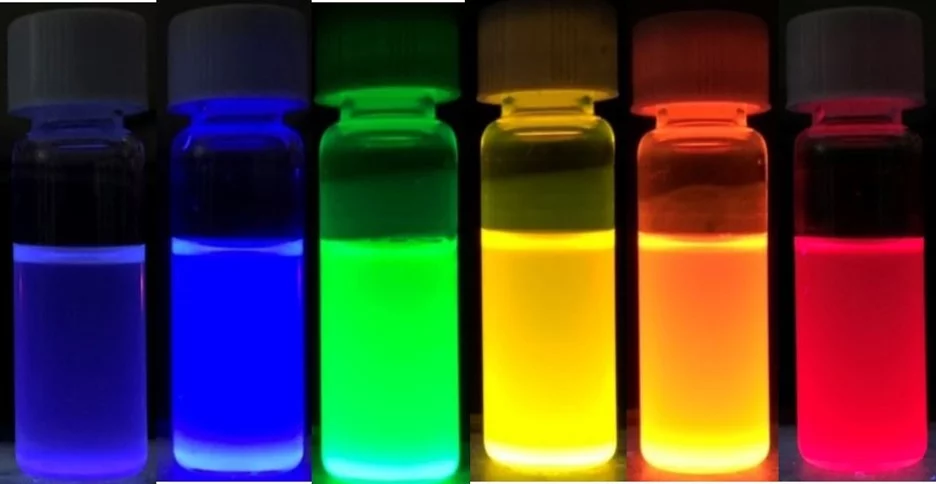
The major purpose of this research center is to develop and deepen cooperation with the optoelectronic device industry in Taiwan and international research center working on perovskitebased material. According to our research focus, we divide our research objectives into two groups: Group I works on solar cell devices designed around luminescence dye and perovskite. Group II main work focus is the development of light-emitting diode devices and novel perovskite devices. The center has the proper equipments to let students make experiments and devices by themselves, such as spin coater, glove box, evaporation machine and PR670 LED testing machine. Through working and collaborating in the research groups, students are able to combine their knowledges they learnt from each others and receive feedback and advices offered by industrial experts.
Center of EMO Materials and Nanotechnology
Contact : Prof. Sea-Fue Wang (sfwang@ntut.edu.tw)
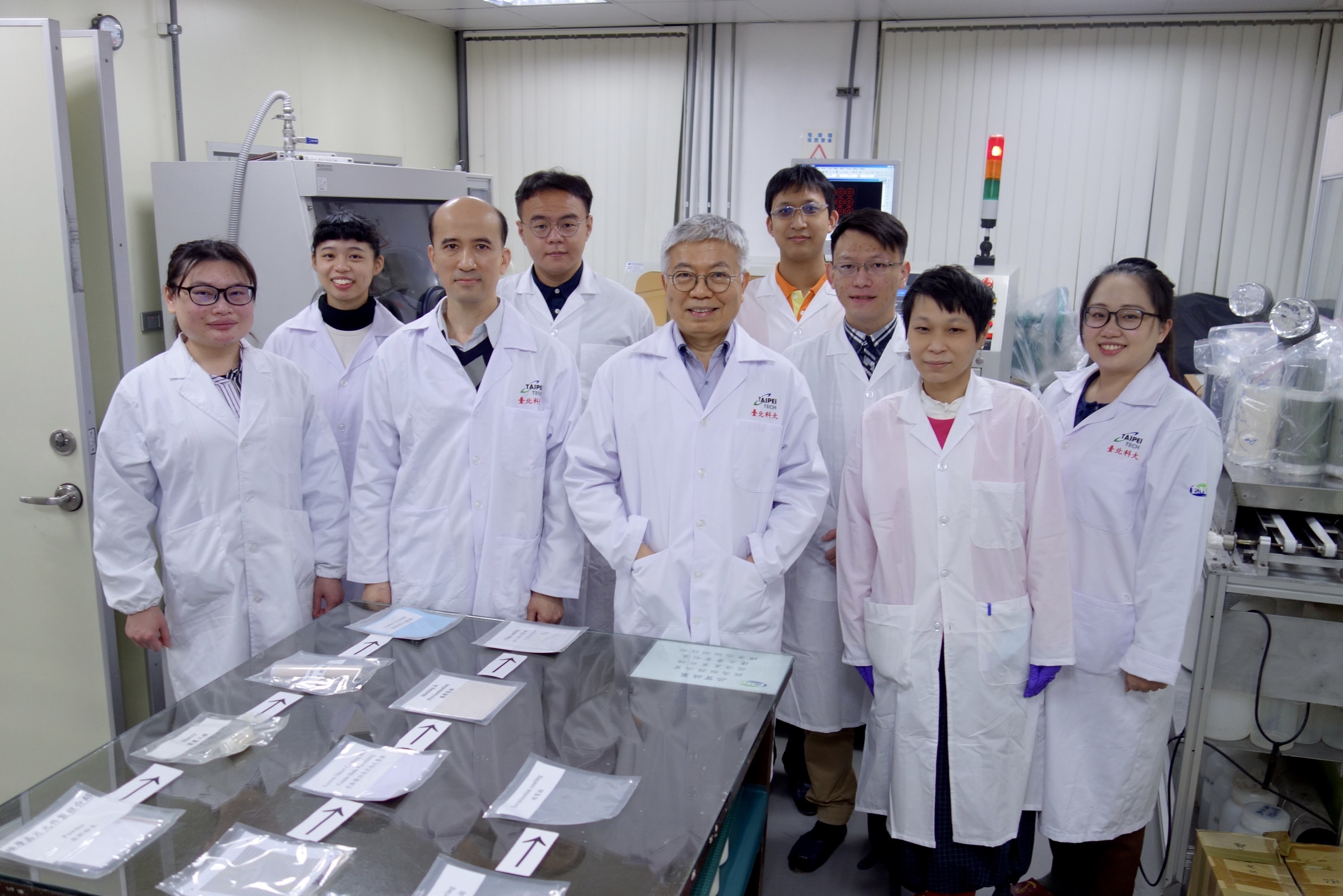
R&D direction:
1. Integral nano ceramic components and modules.
2. Ceramic substrate and body ceramic module.
3. Functional nano powder preparation.
4. Nano diamond material development and application research.
5. Nanocatalyst and its application.
6. Organic polymer light electromagnetic application.
Geopolymer Technology Research Center
Contact : Prof. Yung-Ching Ding (ycding@ntut.edu.tw)
Geopolymer, similar to natural zeolite minerals, is a class of three-dimensionally networked alumino-silicate materials. Due to its superior mechanical and physical properties, such as noncombustible, heat-resistant, fire/acid resistant, easy to make it, and formed at low temperatures, geopolymer have been gradually attracting world attention as potentially revolutionary green materials. The team has been researching in this field for nearly 20 years. Therefore, the purpose of establishing this center is to partially replace traditional Portland cement concrete, and expand the application scope of this technology to waste treatment, concrete reinforcement, fire/heat insulation materials, heavy metal adsorption, Inorganic coatings, environmental protection bricks and other technical fields.
Recycling oriented Environment Research Center
Contact : Prof. Li-Pang Wang (kuniwang@ntut.edu.tw)
The Recycling-oriented Environment Research Center (RERC) was established in 2002. RERC focused on five major themes:
1. Eco-town
2. Eco-industrial
3. Innovative recycling technology
4. Green technology and regulation
5. Environment performance evaluation
Based on technologies and management background, the RERC possesses superior teachers and high-tech facilities. By carrying out projects and programmers, RERC trains up students thinking and analysis ability.RERC also encourage in international exchange. We intend to train students who could be superior international talents in recycling environment field and display unique characteristics that integrate research, education and practical application.
Sustainability, Innovation and Assessment Center (SIAC)
Contact : Prof. Allen H. Hu (allenhu@ntut.edu.tw)
The Sustainability, Innovation and Assessment Center (SIAC) was established in 2016, which is focusing on corporation environment management, life cycle assessment and sustainable development. The purpose of SIAC aims to assist corporation toward to sustainable development, climate change transition and cultivate talents for professionalism. The SIAC is divided into two group, one is Environmental Systems and Life Cycle Assessment Group and other one is Enterprise Sustainable Innovation and Environmental Management Group. The main activity include practicing industry-university cooperative research project with government, company, foreign organization, establishing the environmental database by collected researches related to environmental management and providing some research results to be reference for the government and industry. The main partner is including the Ministry of Science and Technology, Industrial Technology Research Institute, CTCI Foundation, Advanced Semiconductor Engineering, Inc. and Taiwan Mobile Co., Ltd. and so on. The SIAC is located on the 12th floor of the Everlight Building of the National Taipei University of Technology. The SIAC is good at applying SimaPro software for life cycle assessment, Stella software for system evaluation and Umberto software for material flow analysis. All of these database will regularly updates every year to improve data quality and the accuracy of the assessment.


